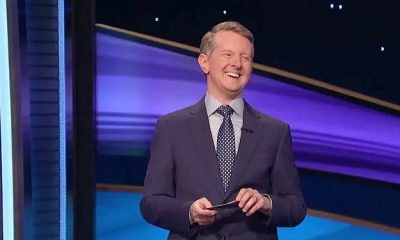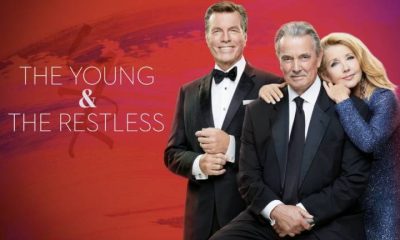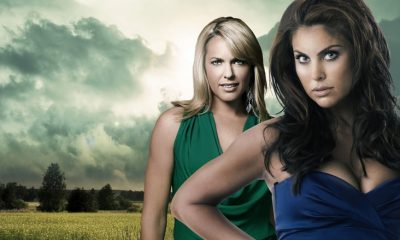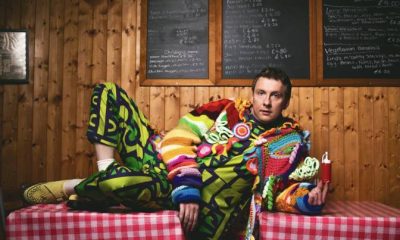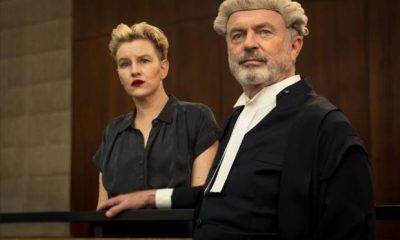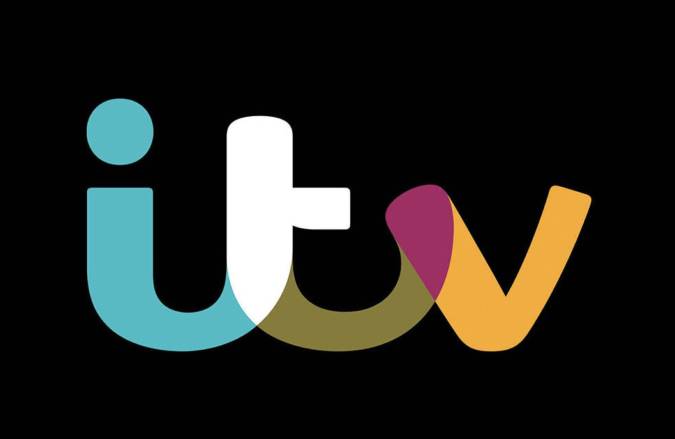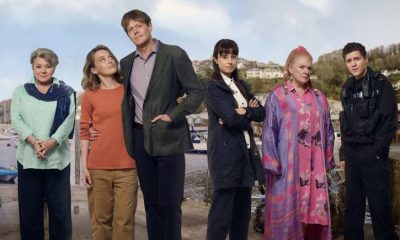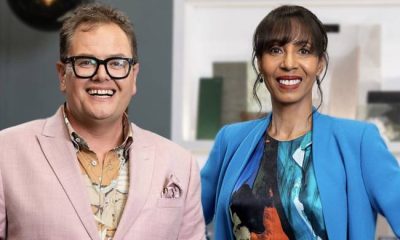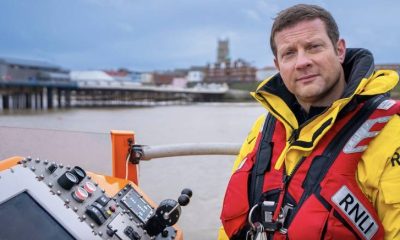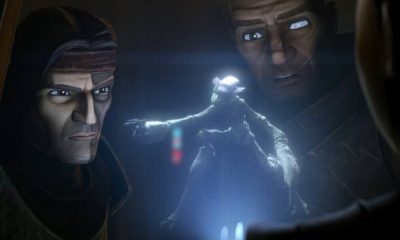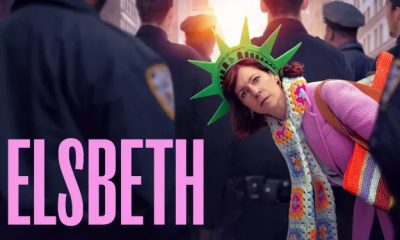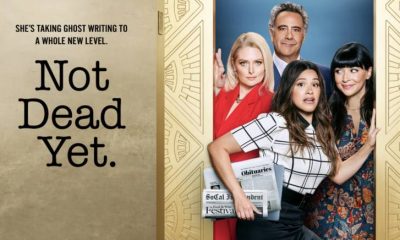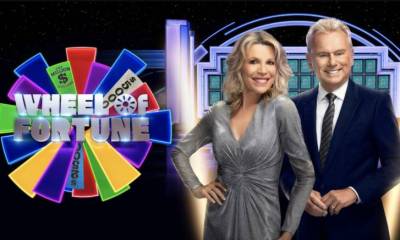Interviews
The Thief, His Wife And The Canoe | Interview with Eddie Marsan (John Darwin)
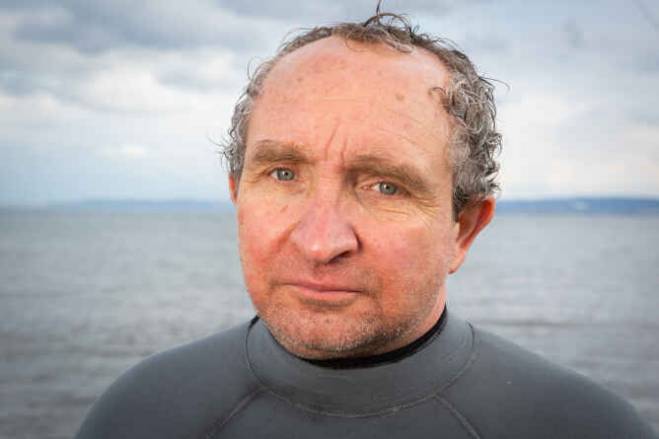
What appealed to you about this project?
It’s just a great script. I was already a big fan of Chris’s, and this was a typically brilliant script by him. It’s a great story about two ordinary people who get into extraordinary circumstances. I love stories like that.
How would you describe John Darwin?
John tried to build a buy-to-let empire and retire early. He had delusions of grandeur. In a narcissistic way, he thought he was smarter than everyone else. That’s why he had the cohones to try this. He thought he could outsmart everyone else. He saw other people as merely two-dimensional and thought he was the only three-dimensional person in the world. But he underestimated people’s ability to see through him.
Is that something we are seeing more of at the moment?
Yes. That form of toxic masculinity is quite common nowadays. These kinds of men underestimate everyone else and think they’re not as clever as they are.
Tell us more about John’s narcissism.
You can see it in the way he treated his sons. Before he faked his own death, he said, “my sons will get over it in a few weeks.” He had a very difficult relationship with his dad. He wasn’t that emotionally attached to his father, so he didn’t realise his sons would be that attached to him. Narcissists think everyone is like them. John lacked empathy. When he actually listened to his sons’ grief, he was shocked by it.
Is John a character people will recognise?
Yes. John’s a fantasist, but his story captures the zeitgeist. I always play characters who are psychologically deluded, narcissistic or abusive. It used to be that they were on the periphery of stories. Society was the norm, and they were outside it. But recently I’ve been playing these characters and they are among us now. The idea of a middle-aged man suffering from self-delusion and narcissism is quite prominent.
Are you surprised you keep being invited to portray these sorts of characters?
Yes! I don’t know why they keep asking me to play these roles. Producers are obviously saying, “we want a middle-aged bloke having a midlife crisis with a healthy close of narcissism. Let’s get Eddie Marsan.” Thanks very much!
Did you relate to John?
Yes. I can see myself in him. A great playwright once said, “nothing human is alien to me.” When you approach a character, you always think, “what is he doing and can I see myself in that?” I always can. I can identify with John’s hubris. As an actor, I go from thinking I’m going to win an Oscar one week to thinking I’m going to be driving a cab the next. My self-esteem goes up and down all the time. So I can completely understand that in John. He refuses to face reality and thinks he’s going to win. We all do that, especially when it comes to money.
Can you expand on that?
We’re all fantasists to a degree. I must have been a fantasist to think I could leave school at 15, become an apprentice printer and then be an actor. I must have been out of my mind! That part of him I sympathise with. I understand that dreamer inside him, but not that part of him that can’t deal with reality.
In researching this, did you meet John?
No. I read the book, but I was there to serve the script. That was my point of reference. Was I tempted to try and find John? No. I don’t know if he could have given me any new insights. If he had had the self-awareness to give me any insights into himself, then he wouldn’t have committed this crime in the first place!
How would you characterise the relationship between John and Anne?
The dynamic between them is fascinating. They are co-dependent. They’re both so dysfunctional, but on the surface you don’t realise it. In private, however, you see that he is a fantasist and she just wants to be loved by him.
What was it like working with Monica Dolan?
It was wonderful. We laughed all the time and had great fun together. I’ve been a big fan of hers for years. She is one of the best actresses in the country. I’ve been lucky enough to work with Olivia Colman, and Monica is right up there. She’s chameleonlike, and I always admire that versatility and authenticity. Monica and I are not celebrities. This drama, you needed two people you could believe in as John and Anne. You needed everyman characters who are plunged into extraordinary circumstances.
Did you both stay in character all the time on set?
Yes. I don’t know what Monica sounds like when she’s not Anne! We wanted to sound like a married couple, so we only spoke to each other in a Hartlepool accent.
What distinguishes Chris Lang as a writer?
He is a brilliant craftsman. His scripts are very easy to learn because he is fantastic at writing dialogue. He is superb at creating an arc for a character, too. He creates obstacles that they have to get over. Chris also adheres to the golden rule of script writing: in every scene, you get in late and get out early. He doesn’t hang about. His writing is very funny, and yet you don’t play it for humour. You play it for real.
What do you think viewers will take away from The Thief, His Wife and the Canoe?
I think people may come away with a bit of empathy for Anne, but less so for John. Especially during lockdown, lots of us have faced financial difficulty in circumstances we can’t control. What this story does is take that to an extreme. Lots of us face financial difficulties, but we don’t come up with such extraordinary solutions.
If you met John, what would you say to him?
I’d say, “What were you thinking? That was crazy!” But I don’t know if I’d like to meet him. He’s probably hacked off that it’s not Brad Pitt playing him. When he heard it was me, he probably thought, “great. Thanks a lot!”










